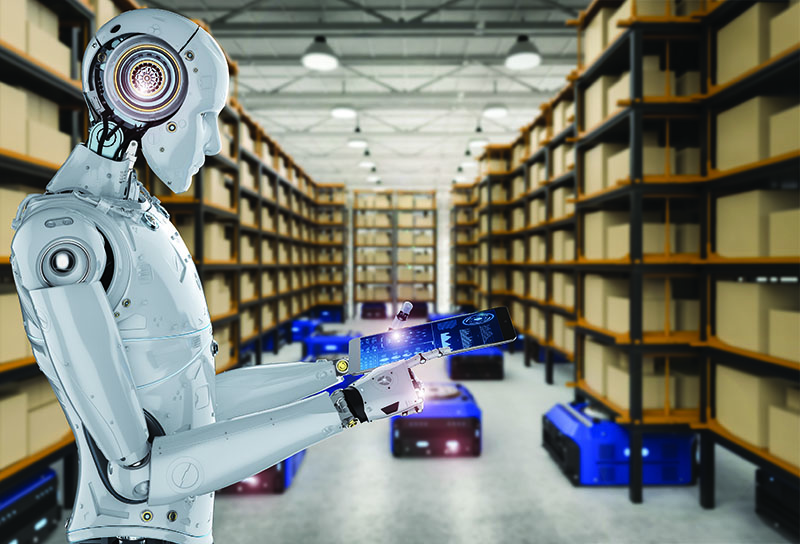Editor’s Note: Vishal Chatrath is Co-Founder and CEO of Secondmind
Many industries rely on a framework to guide them through difficult situations. But while information security specialists have ISO 27000 standards to rely on, supply chains lack a proper equivalent.
Historically, supply chains have used traditional forecasting methods and data to predict future demand, analyzing extensive data to dynamically manage numerous trade-offs and complex problems, such as capacity constraints, inventory optimization and demand prediction. But COVID-19 has exposed the fragility of these traditional systems, as historic data becomes less relevant and reliable in exceptional times.
Fortunately, emerging new AI technologies are better placed to help overcome these challenges. It’s a long road ahead, but resilience is not out of reach – and supply chains can take action today to be in a better place tomorrow.
Without resilience, the unexpected can be truly problematic
Supply chains no doubt benefit from AI and there are many advocates for its potential to transform. However, our recent global research of supply chain managers and planners found that more than one-third (41%) are frustrated by the rigid processes that AI solutions today offer.
Those processes, along with sluggish internal structures, prevented supply chains from quickly responding to evolving market conditions. Nearly as many respondents (37%) complained about the lack of reliable data to feed into AI systems.
Almost all (96%) of supply chain managers and planners said these frustrations had an impact on how efficiently they could make decisions during the pandemic. Manual tasks – which could be easily automated – continued to take up nearly three hours of company time as employees moved data between systems and exported data for analysis within Excel.
Chief Resilience Officers for the supply chain
Organizations may not yet have a person in charge of resilience as standard, but it’s high time for that to change. The Chief Resilience Officer (CRO) is now sorely needed to define the level resilience that an organization needs to continue its operations under extreme events, make the business justification for investing in the resilience and implementing an organization-wide process to ensure that the mandated level of resilience is audited and maintained. The CRO would also work with independent auditing companies to define the framework for auditing resilience in organizations. A new generation of AI tools are now available that allow organizations to more effectively test different scenarios and better mitigate risk while promoting the adoption of systems that close the gap between people and AI.
By taking the time to test and plan for different scenarios with AI-powered solutions – particularly those that assist with dynamic capacity planning and allocation planning – supply chains will become more resilient as we move into times of increased uncertainty. This would have an additional benefit of improving overall system efficiency and reducing waste.
They must focus on building systems that find ways to capture the human experience in the AI model - it’s a myth that AI alone is the answer. Companies need to be able to analyze unstructured data, gain knowledge out of it and teach their own systems. The CRO can promote this powerful combination, which allows organizations to optimize decision-making at a time when the cost-benefit trade-offs will need to be demonstrable.
People need AI, AI needs people
In our global research, respondents were clear in their belief that if AI could be deployed more effectively – and thus reduce the number of manual tasks that need to be completed – they could focus on objectives that increase supply chain resilience.
There will always be some events, from extreme weather to software failures or even health crises, that are impossible for a machine to predict. People, therefore, need to remain in control of decision-making at all times, collaborating with AI to strengthen their instincts, make better plans and assess risks.
By deploying new and practical AI techniques to circumvent capacity constraints and challenges associated with demand, as well as inventory levels and asset utilization, supply chain managers and planners will be better positioned to thrive. AI can ultimately serve as a companion to human employees, augmenting their work as they collaborate for greater efficiency and productivity.
https://cdn.sanity.io/files/2n305zeh/production/5755859f2d25df3145bc0f1ac8a94b246cf304d2.pdf
SC
MR


Latest Supply Chain News
- How S&OP provides the answer to in-demand products
- AI, virtual reality is bringing experiential learning into the modern age
- Humanoid robots’ place in an intralogistics smart robot strategy
- Tips for CIOs to overcome technology talent acquisition troubles
- There is still work to do to achieve supply chain stability
- More News
Latest Podcast

 Explore
Explore
Business Management News
- How S&OP provides the answer to in-demand products
- AI, virtual reality is bringing experiential learning into the modern age
- Tips for CIOs to overcome technology talent acquisition troubles
- There is still work to do to achieve supply chain stability
- Blooming success: The vital role of S&OE in nurturing global supply chains
- Supply chain salaries, job satisfaction on the rise
- More Business Management
Latest Business Management Resources

Subscribe

Supply Chain Management Review delivers the best industry content.

Editors’ Picks





